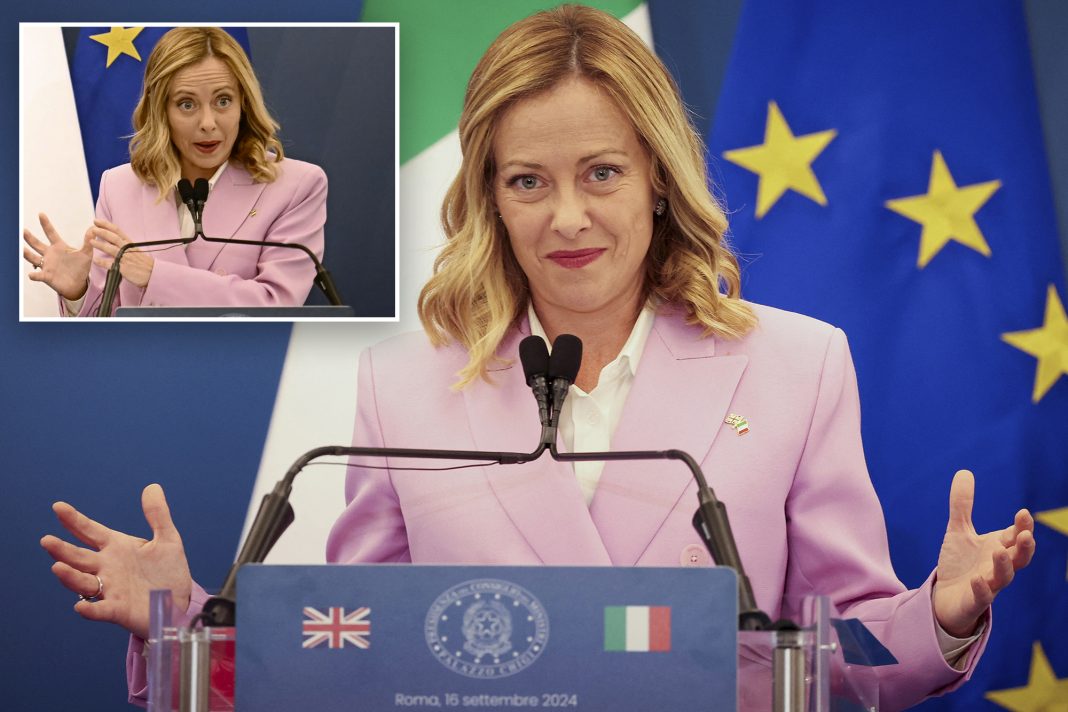Under the leadership of Prime Minister Giorgia Meloni, Italy has witnessed a remarkable 64% decrease in illegal immigration, a development that Foreign Minister Antonio Tajani attributes to rigorous efforts in combating human smuggling and fostering cooperation with neighboring countries. This significant drop not only highlights the effectiveness of Italy’s stricter border policies but also raises questions about the broader implications for European immigration strategies.
Tajani, speaking in a recent interview, emphasized that achieving such results requires substantial effort and a commitment to tackling illegal immigration head-on. “It’s not easy. We’ve worked hard to achieve this goal,” he stated, reinforcing the distinction between illegal and legal immigration, which he maintains is welcomed. This stance resonates with many Italians who have grown increasingly concerned about the challenges posed by undocumented migrants.
Central to Meloni’s approach is a proactive collaboration with North African nations, such as Tunisia, Egypt, and Libya. By engaging these countries, Italy aims to curtail the number of boats attempting to cross the Mediterranean and disrupt the criminal networks that facilitate human trafficking. “Human traffickers are the most important part of crime. They belong to the same organizations as weapon and drug traffickers,” Tajani remarked, highlighting the multifaceted nature of these criminal enterprises. The urgency of addressing human trafficking has become a focal point in Meloni’s administration, which recognizes that these syndicates not only threaten national security but also exploit the vulnerabilities of desperate migrants.
Meloni campaigned vigorously on immigration issues, and her policies have sparked varied reactions across Europe. Interestingly, even figures from the left, such as UK Prime Minister Keir Starmer, have acknowledged the effectiveness of Italy’s immigration strategies. This bipartisan recognition reflects a shifting sentiment within Europe, where conservative leadership is gaining traction in response to complex socio-economic challenges.
While Meloni’s administration has made strides in reducing illegal immigration, it is also navigating the broader landscape of Europe’s economic woes. The continent has faced sluggish growth for years, a situation exacerbated by various political and social factors. Recently, Mario Draghi, the former Prime Minister and European Central Bank chief, released a comprehensive report aimed at identifying strategies to rejuvenate the European economy. His recommendations, which include regulatory reforms and streamlining bureaucratic processes, underscore the urgent need for innovation and adaptability within the European Union.
Tajani pointed out that Italy’s economic landscape is showing signs of improvement, with a decrease in unemployment and a rising stock market. However, he acknowledged that there is much work left to be done. “We need to do more,” he cautioned, a sentiment that resonates with many citizens who have felt the strain of economic stagnation for over two decades.
As the Italian government works to bolster its economy and maintain its hardline stance on immigration, the ramifications of these policies are still unfolding. While the reduction in illegal immigration is a notable achievement, it is accompanied by a call for continued vigilance against human trafficking and a commitment to fostering legal immigration pathways that benefit the nation.
In conclusion, Italy’s experience under Meloni’s leadership serves as a case study in the complexities of managing immigration amidst economic challenges. The successes and criticisms of her administration’s policies may well influence the broader European discourse on immigration and economic revitalization, setting a precedent that could shape the future of the continent. As nations grapple with these intertwined issues, the Italian model may offer valuable lessons in balancing security, humanitarian concerns, and economic growth.


